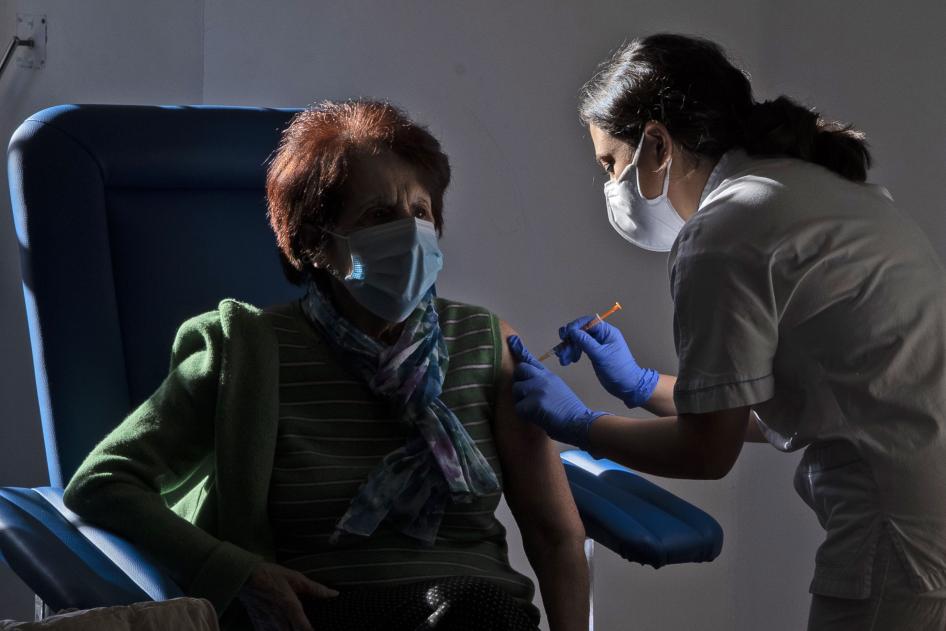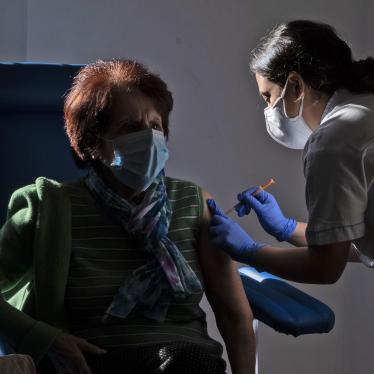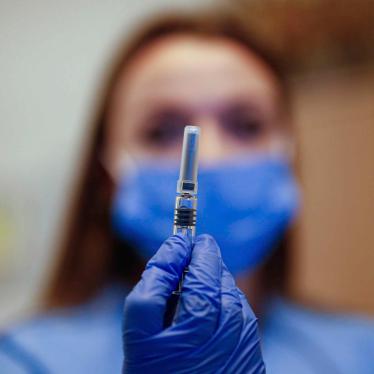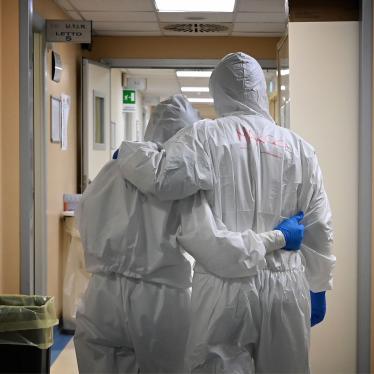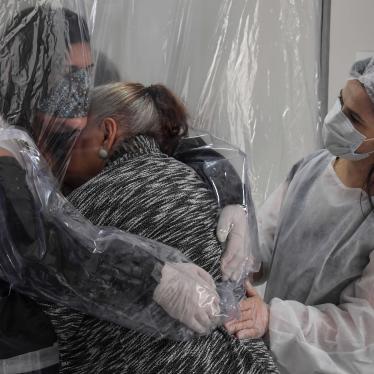Over the last few weeks, the relief brought on by the Covid-19 vaccine roll-out has been marred by supply delays and growing concerns around inequitable access. Of the more than 131 million doses given in 73 countries by February 8, 78 percent (more than 102.48 million doses) went to people in the United States, China, within the European Union, and the United Kingdom. The World Health Organization reported an alarming statistic: by February 5, not a single dose was administered in 130 countries with 2.5 billion people.
Bridging the vaccine gap requires a human rights approach. Governments have the primary responsibility to ensure everyone, everywhere has access to a safe and effective Covid-19 vaccine. But companies have human rights responsibilities too.
Human Rights Watch’s new Question-and-Answer document, “Universal and Equitable Access to Covid-19 Vaccines, Testing, Treatments: Companies’ Human Rights Responsibilities,” draws upon the 2011 UN Guiding Principles on Business and Human Rights and the 2008 UN Human Rights Guidelines for Pharmaceutical Companies in relation to Access to Medicines to inform pharmaceutical companies’ approach to making Covid-19 medical products available and affordable. The document highlights key risks pharma companies should respond to, including intellectual property and pricing risks. It also identifies practices companies should avoid, and information they should disclose by limiting the use of confidentiality clauses.
Transparency is key to engendering trust between companies, governments, and the public. Proactive and regular disclosures about how a pharmaceutical company has responded to key human rights risks is a hallmark of ethical business.
The questions people have been asking of governments and pharmaceutical companies are stacking up. For example, delays in BioNTech/Pfizer’s and AstraZeneca’s vaccine supply to parts of Europe have once again put a spotlight on how little we know about the contractual terms governing vaccine production. There’s widespread unease about how much governments are paying to companies and why. In Uganda, for example, people are questioning reports that their government paid 20 percent more than South Africa, and triple what the European Union paid, for AstraZeneca’s vaccines. The People’s Vaccine Alliance issued a report finding that “artificial” rationing of vaccines was adding to supply shortages.
It shouldn’t require chaos, frayed tempers, and public outcry for pharmaceutical companies to adopt good practices in their human rights policies and risk assessments and be transparent.
|
Dispatches
Covid-19 Vaccine Producers Have Human Rights Responsibilities
Pharma Companies Should Adopt Rights-Based Approach to Help Bridge Vaccine Gap
Your tax deductible gift can help stop human rights violations and save lives around the world.
Region / Country
Tags
Most Viewed
-
April 4, 2025
The Lonely Death of a Rwandan General

-
December 15, 2024
Sudan: Fighters Rape Women and Girls, Hold Sex Slaves

-
April 4, 2025
Niger Junta’s Release of Detainees Falls Short

-

-
August 29, 2024
South Korea’s Digital Sex Crime Deepfake Crisis



